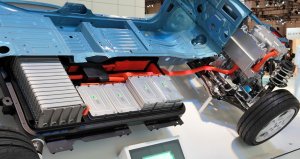

Key Features
UK businesses can apply for a share of up to £30 million to work on innovation projects to design, develop and manufacture batteries for the electrification of vehicles.
Programme: Faraday Challenge Industrial Strategy Challenge Fund, the Advanced Propulsion Centre in partnership with Innovate UK
Award: Up to £21m
Opens: 25th Jul 2017
Closes: 14th Sep 2017
As part of the government’s Faraday Challenge Industrial Strategy Challenge Fund, Innovate UK is to invest up to £30 million in innovation projects. This is to support the UK to lead the world in the design, development and manufacture of future batteries for vehicle electrification.
This competition is the first portion of innovation funding as part of the clean and flexible energy or ‘Faraday’ Challenge.
Projects must support the overall goal of the UK to becoming a global leader in the design, development and manufacture of batteries for electric vehicles.
In line with the objectives of the Faraday Challenge, projects should address the following technical and supply chain challenges:
Successful projects will increase productivity, competitiveness and growth for UK businesses.
Total environmental impact should be a key consideration for all projects.
Specific competition themes
Applications are encouraged that:
Eligibility
To be eligible you must:
Funding and project details
The Department for Business, Energy and Industrial Strategy and Innovate UK have allocated up to £30 million for collaborative research and development projects. They should address the technical and commercial challenges identified in the scope section.
Projects should address the technical and commercial challenges identified in the scope section. Projects must clearly show how their technology is drawing from fundamental research and can be scaled up, and therefore how the project builds a future UK supply chain for automotive traction battery applications.
All projects must be collaborative and involve at least one SME.
Project types
For industrial research you could get:
up to 70% of your eligible project costs if you are an SME.
For experimental development projects which are nearer to market, you could get:
up to 45% of your eligible project costs if you are an SME
